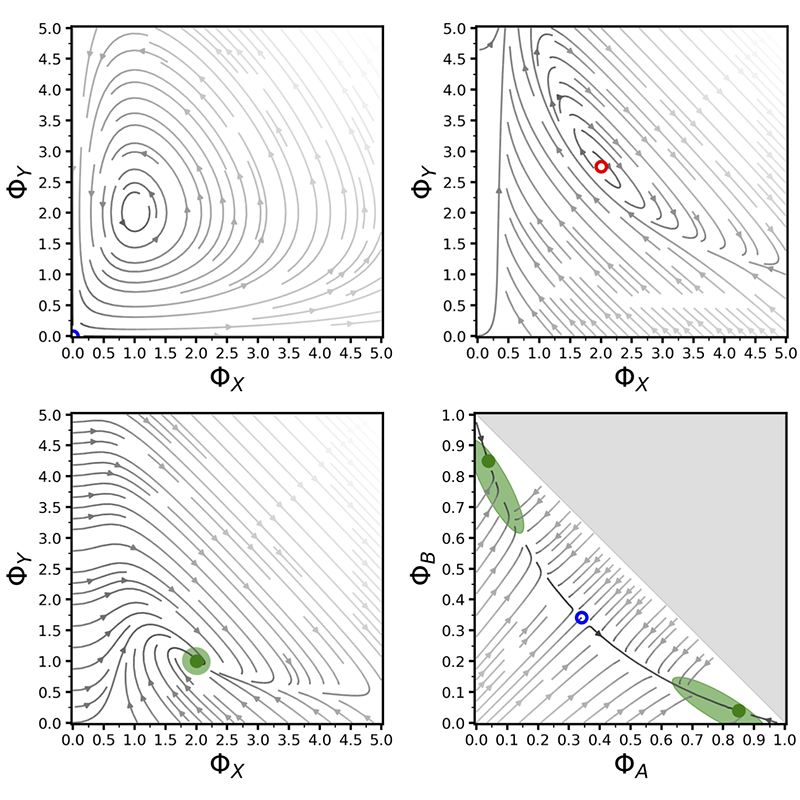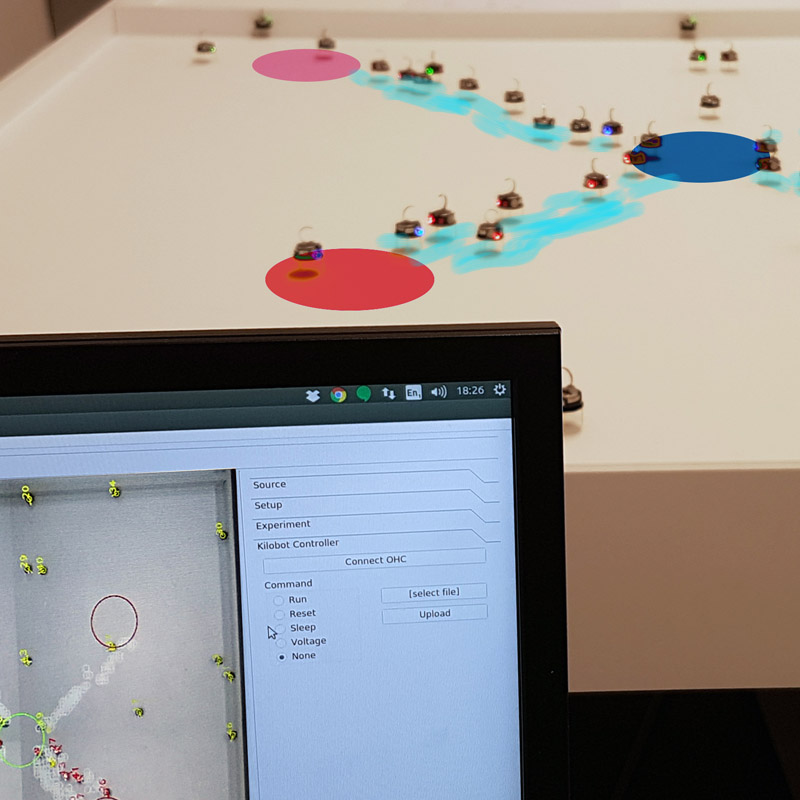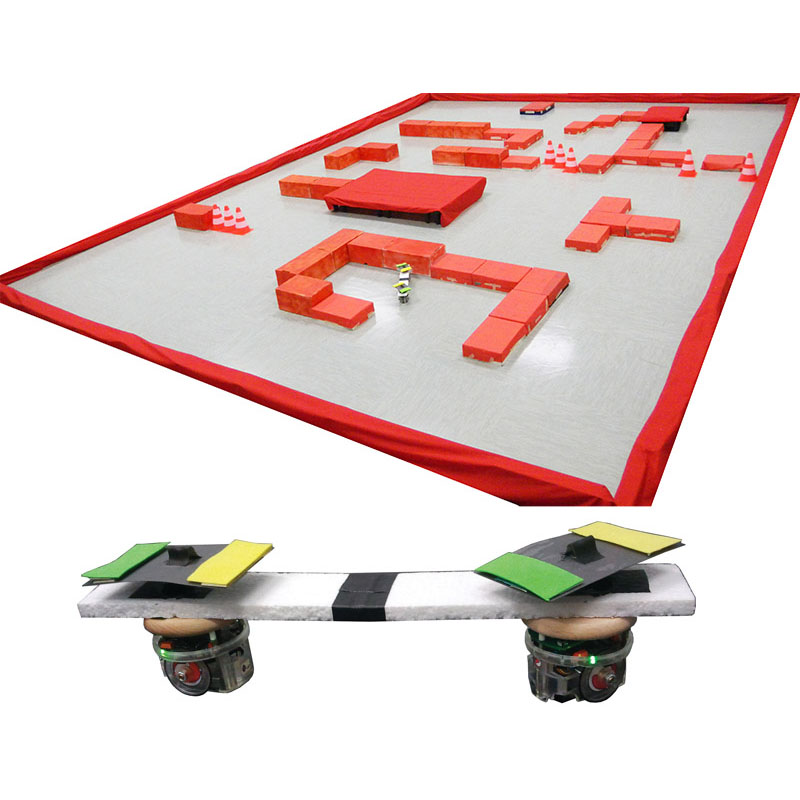
Andreagiovanni Reina, Research Group Leader — GIO Lab — Group Intelligence and self-Organisation
Centre for the Advanced Study of Collective Behaviour, Universität Konstanz & Max Planck Institute of Animal Behavior, Germany
Swarm Awareness
Project website: https://swarmawareness.group.shef.ac.uk ![]()
Swarms systems are composed of a large number of autonomous agents, such as robots or sensors, which interact with each other and with the environment to perform a common task. A typical feature of swarm systems regards the limited knowledge of the agents, which have sensing capabilities limited to a local range around them. Therefore, each agent has access to limited information and has partial knowledge of the status of the global swarm. This is a challenge for the deployment of swarms for collective tasks, such as decision-making; while decentralised collective decision-making mechanisms are being developed, the question of how individual agents recognise in a decentralised way that a group decision has been reached, and what it is, are usually deferred. Through my research, I aim to endow the swarm with awareness of its own state, thus allowing individual agents with local information to know the global swarm state. I refer to decentralised sensing of swarm state as Swarm Awareness. Particular examples of states to measure are swarm size (number of agents, e.g. Saha et al., arXiv 2019), fraction of the swarm committed to a unique decision (quorum), and super-threshold decision (decision-state).
The challenge is to allow the swarm to reach a consensus on its own global state. Each agent can noisily estimate this state, however, different agents may disagree. To reach an agreement on the global state, individuals can use consensus decision algorithms. In case of quorum sensing, this can be seen as a meta-decision, where the swarm must decide if the decision has been taken or not. I am principal investigator, together with James Marshall, on the Swarm Awareness project, funded by ONR-G for 2.5 years. During this project, we are looking at solutions that social insects implements to solve similar problems; the goal is both to better understand insects’ collective behaviour and to take inspiration from nature to engineer better artificial swarm systems.
- A. Saha, J.A.R. Marshall, A. Reina. A decentralized algorithm for network node counting. arXiv:1912.06802v2, 2019.
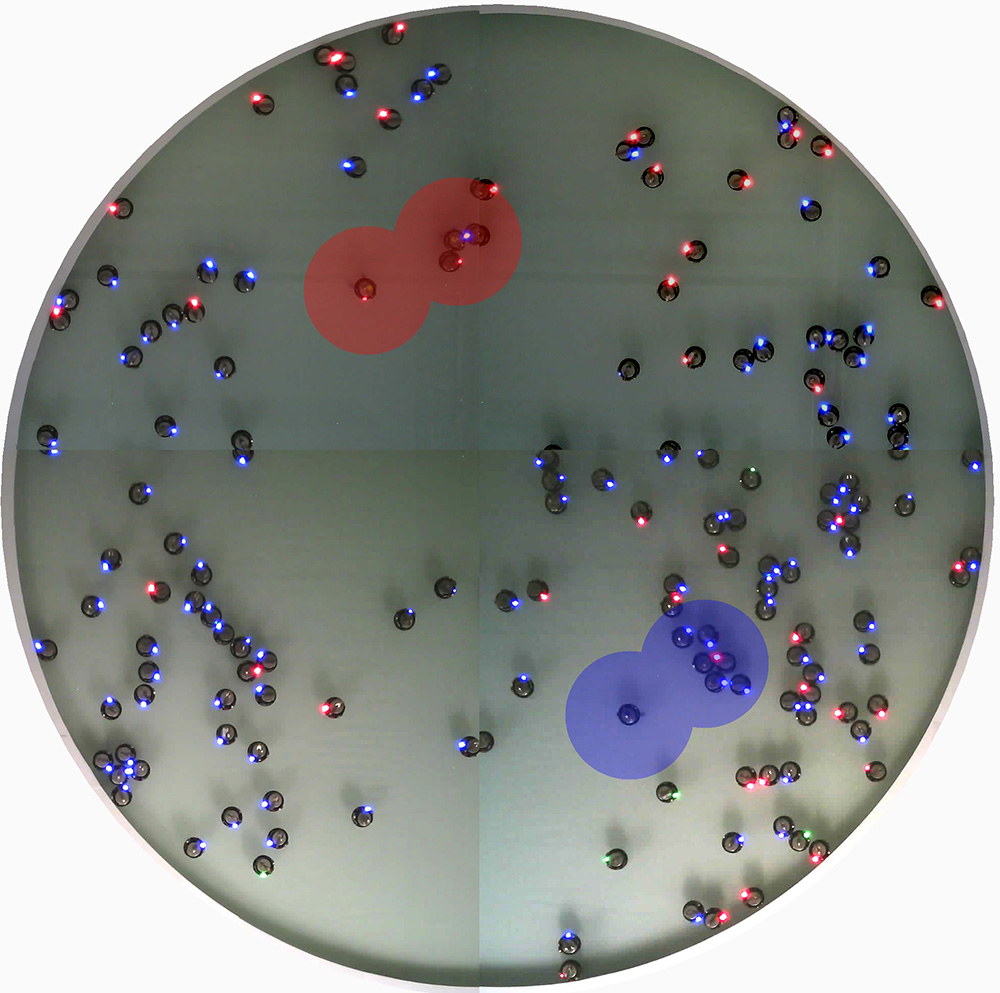
Engineering distributed decision-making
|
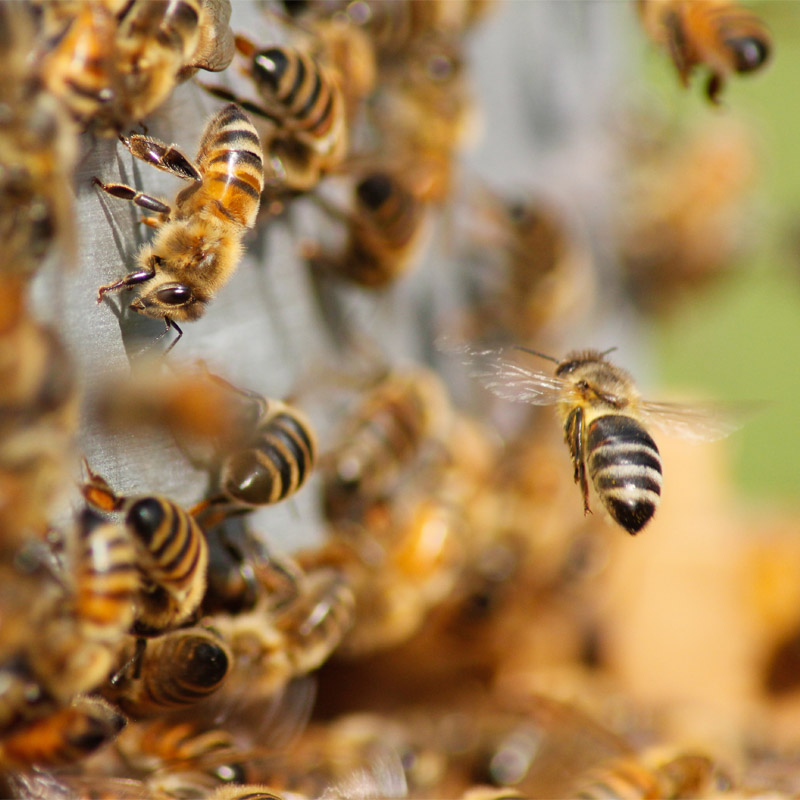
Value-sensitive
decision-making |
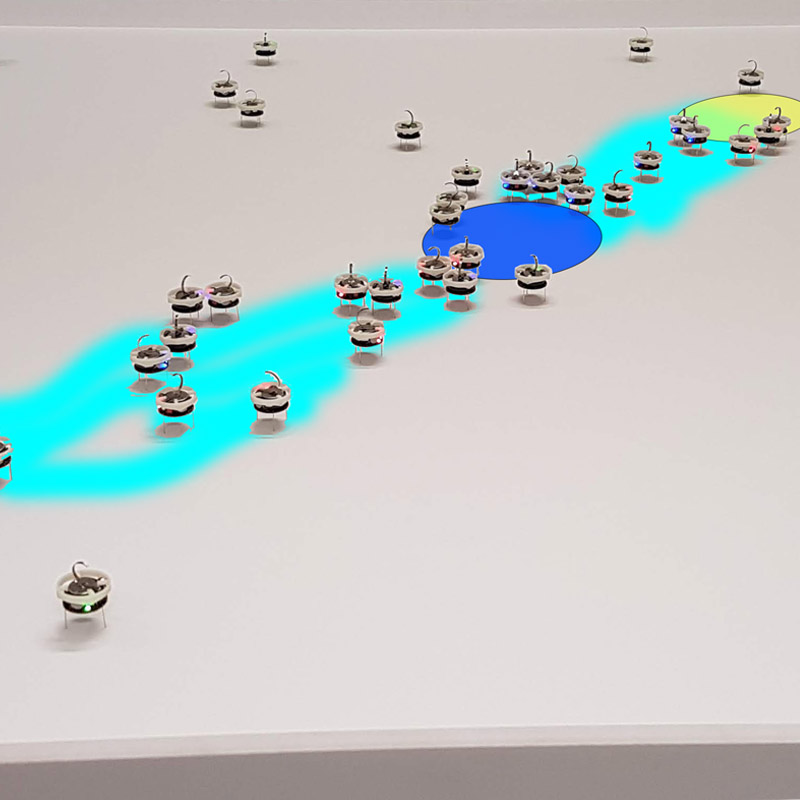
Collective foraging with minimalist agents
|
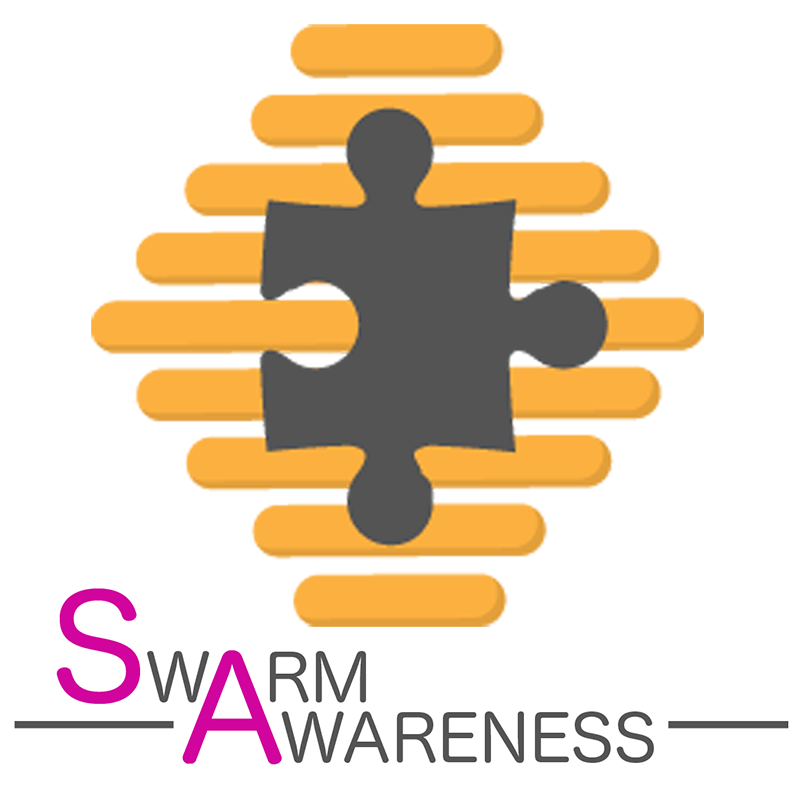
Swarm Awareness
|







